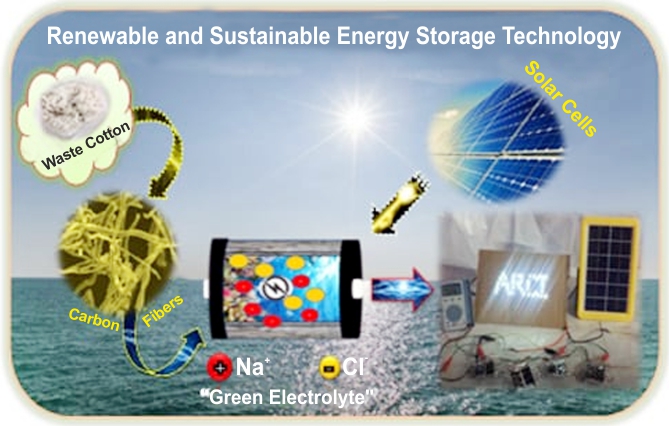Science & Technology
Low-cost Supercapacitor
- 15 Jul 2020
- 3 min read
Why in News
Recently, scientists at the International Advanced Research Centre for Powder Metallurgy and New Materials (ARCI) have developed a simple, low-cost, environment-friendly, and sustainable supercapacitor device.
- ARCI is an autonomous organization of the Department of Science and Technology, Government of India.
Supercapacitor
- Supercapacitor is a next-generation energy storage device. They are also known as ultracapacitors.
- It has significant advantages such as high power density, long durability, and ultrafast charging characteristics as compared to conventional capacitors and Lithium-Ion batteries (LIB).
- Main components of supercapacitors include electrode, electrolyte, separator, and the current collector.
- The electrode and electrolyte are the pivotal components, which directly determine the electrochemical behaviour of the supercapacitors.
- The manufacturing cost of electrode materials, as well as electrolytes account for a major portion of the supercapacitor manufacturing cost.
- An electrode is a solid electric conductor that is used to take an electric current to or from a source of power.
- An electrolyte is a substance that produces an electrically conducting solution when dissolved in a polar solvent, such as water.
Key Points
- Supercapacitor Device:
- The supercapacitor is developed from industrial waste cotton based electrode & natural seawater electrolyte.
- Industrial waste cotton was converted into highly porous carbon fibers by activation process and then utilised to make high-performance supercapacitor electrodes.
- Natural seawater was explored as an environment-friendly, cost-effective and alternative aqueous electrolyte.
- Benefit:
- This supercapacitor showed great potential for practical implementation.
- It exhibited maximum capacitance, good durability and high efficiency.
- Capacitance is the ability of a system to store an electric charge.
- Efficiency denotes the charge transfer in a system facilitating an electrochemical reaction.
- When integrated with a solar cell, the supercapacitor will become a low cost, eco-friendly, efficient and self-powering device.
- It has a long life cycle and can be used as maintenance-free power supply.
- It can also overcome the drawbacks of the intermittent nature of the solar irradiation.
- Conclusion:
- The development is an excellent example of creative science for the sustainable, green processes embedding principles of waste-to-wealth.






